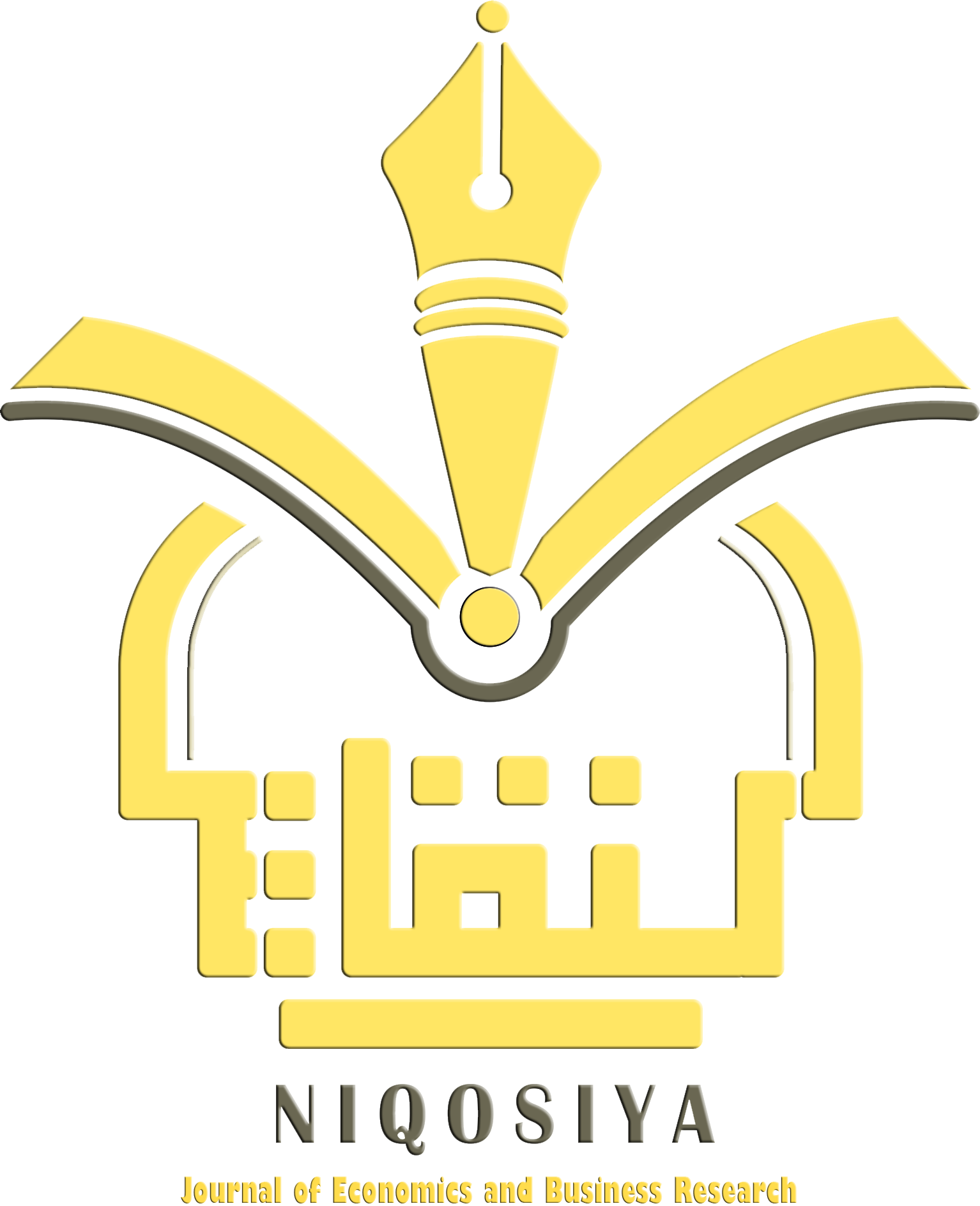Peranan UMKM Di Desa Kajang Untuk Meningkatkan Kesejahteraan Masyarakat Dalam Tinjauan Maqāşid Syarī’ah
Abstract
Introduction: UMKM is the most strategic sector of the national economy and concerns the lives of many people so that they become the backbone of the national economy. Such is the case with UMKM in Kajang Village, Sawahan District, Madiun Regency, which makes UMKM an effort to improve welfare. Research Methods: The research method used is a qualitative descriptive research method which is a problem-solving procedure by describing circumstances based on facts that appear as they are. Results: The existence of UMKM can provide benefits to the community supported by an increase in the number of UMKM in Kajang Village and can improve the quality of human resources which are expected to have many new innovations able to meet the four benchmarks of community welfare and also the three levels of sharia maqasid. The obstacles faced come from internal factors and external factors. Conclusion: UMKM in Kajang Village has a very important role in the community which is able to open new job opportunities. The people of Kajang Village have met all four indicators, namely income, residential housing, education, and health. In the analysis of maqāṣid syarī'ah, the people of Kajang Village have fulfilled three levels, namely dharuiriyyah, hajiyyah, and tahsiniyyah.
Downloads
References
Adawiyah, W. R. (2011). Faktor Penghambat Pertumbuhan Usaha Mikro Kecil Menengah (UMKM): Studi di Kabupaten Banyumas. Journal & Proceeding Feb Unsoed, Vol. 1 No., 10.
Anggraeni, F. D., Hardjanto, I., & Hayat, A. (2013). Pengembangan Usaha Mikro, Kecil, dan Menengah (UMKM) Melalui Fasilitasi Pihak Eksternal dan Potensi Internal (Studi Kasus pada Kelompok Usaha “Emping Jagung” di Kelurahan Pandanwangi Kecamatan Blimbing, Kota Malang). Jurnal Administrasi Publik (JAP), Vol. 1 No., 1292.
Fauzia, I. Y., & Riyadi, A. K. (2014). Prinsip Dasar Ekonomi Islam: Perspektif Maqashid Al-Syariah. Kencana.
Indrianto, N., & Supomo, B. (2009). Metodologi Penelitian Bisnis untuk Akuntansi & Manajemen. BPFE-Yogyakarta.
Ismanto, K. (2016). Asuransi Perspektif Maqashid Asy-Syariah. Pustaka Pelajar.
Kartadinata, S. (1997). Pendidikan dan Pengembangan SDM Bermutu Memasuki Abad XXI. 7.
Kementrian Koperasi dan Usaha Kecil dan Menengah. (2021).
Nopirin. (2009). Ekonomi Moneter. BPFE.
Rukminto, B. (2008). Efektivitas Pemberdayaan Usaha Mikro Kecil dan Menengah (UMKM) dalam Program Pengembangan Labsite Pemerdayaan Masyarakat. Jurnal UNAIR.
Sakur. (2011). Kajian Faktor-Faktor yang Mendukung Pengembangan Usaha Mikro Kecil dan Menengah: Studi Kasus di Kota Surakarta. Spirit Publik, Vol. 7 No., 92.
Shidiq, S. (2017). Ushul Fiqh. Kencana.
Sugianti, S. (2019). Peran Usaha Mikro Kecil dan Menengah (UMKM) Dalam Mensejahterakan Karyawan di Pusat Oleh-oleh Mak Denok Desa Serdang Jaya Kabupaten Tanjung Jabung Barat (Vol. 53, Nomor 9). Universitas Islam Negeri Sulthan Thaha Saifuddin Jambi.
Sugiyono. (2011). Penelitian Pualitatif dan D&D. Alfabeta.
Sugiyono. (2014). Metode Penelitian Kualitatif Kuantitatif. Alfabeta.
Sumodiningrat, G. (1999). Pemberdayaan Masyarakat dan Jaring Sosial. PT Gramedia Pustaka Utama.
Suyadi, Syahdanur, & Suryani, S. (2018). Analisis Pengembangan Usaha Mikro Kecil dan Menengah (UMKM) di Kabupaten Bengkalis-Riau. Jurnal Ekonomi KIAT, Vol. 29 No.
Tulus, T. (2003). Prospek UKM Indonesia di Dalam Era Perdagangan Bebas dan Globalisasi Ekonomi Dunia. Makalah disajikan dalam Kongres ISEI ke. XV.
Copyright (c) 2023 Cholifah Karunia Karunia, Unun Roudlotul Janah

This work is licensed under a Creative Commons Attribution-NonCommercial 4.0 International License.














